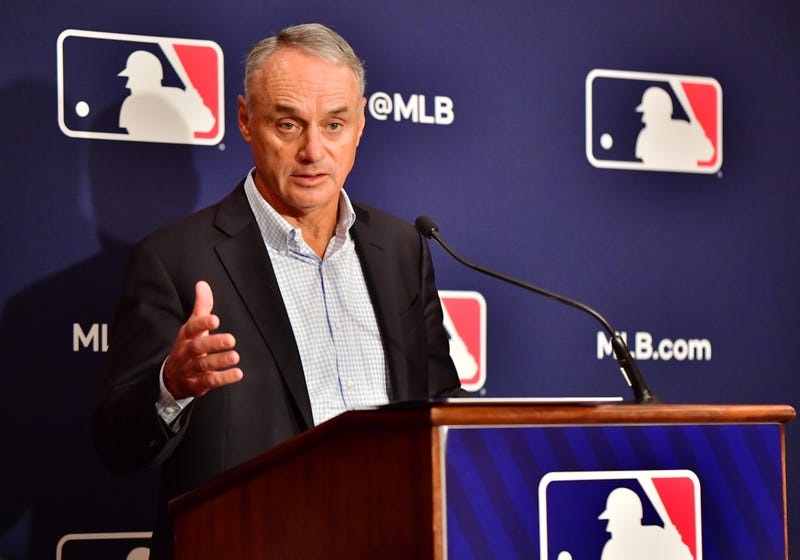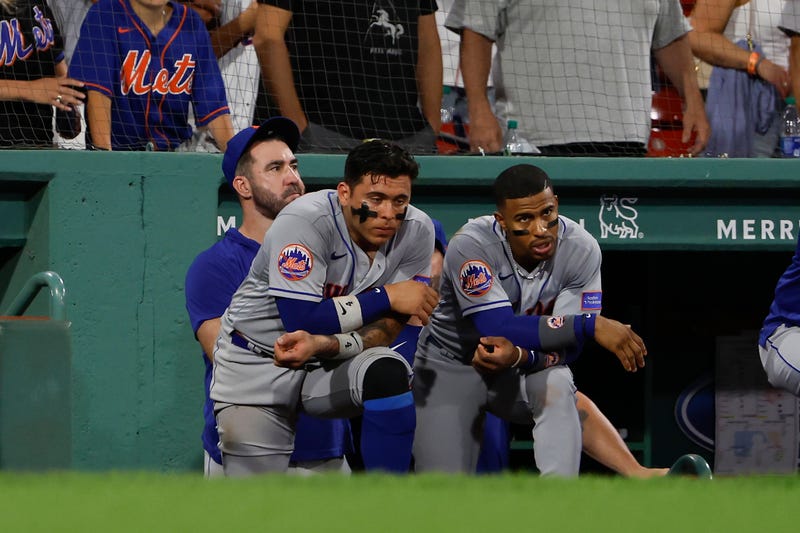
From the time a child is able to grab a baseball bat and participate in tee-ball, to the end of their recreational playing career, the game's objective is simple: to win. But, for several Major League Baseball owners and commissioner Rob Manfred, handsomely profiting off of clubs has created an uneven balance of consistent playoff contenders and bottom-feeders around the league.
A brief skimming of the last-place teams in the standings divulges an alarming trend. MLB's cellar dwellers so far down, that they can't even see the sunlight coming from the top. Of the league's six divisions, five of the last-place teams are 15 playing games under .500 or worse. The Pirates, the one team that isn't meeting this ugly mark, still have a misleading record by virtue of a shockingly hot start that didn't last.
Over in the American League, the Athletics (28-75 record) and Royals (29-74) have nearly double the amount of games separating wins and losses, as both clubs are well on pace to lose 100-plus games. Although the National League doesn't boast organizations as humiliating this season, both the Rockies and Nationals have epitomized the notion of gaming the system to maximize their revenue, all while deprioritizing winning and spending as little as possible.
Aside from being a bad look for a sport boasting itself as America's pastime, this is part of the reason why fans pay more attention to the NFL's offseason than baseball -- even when it's the only major sport being played during the summer. The most frustrating part about Baseball's dilemma of allowing and promoting consistent losing? They've done nothing to prevent it.
So, let's rewind the tape for a minute. Baseball got to this point by choosing not to implement a salary cap -- which is great for players commanding huge salaries, but horrible for the mid-market teams that operate on tight budgets. And the distortion of spending is so drastic, that there's roughly $288 million separating the Mets, which have baseball's highest payroll ($348M), and the Athletics, which have the lowest ($60M). In fact, the Mets spent $26 million more on veteran pitchers Max Scherzer and Justin Verlander alone this past offseason than the Athletics spent on their entire roster.
Baseball has largely become a pay-to-play sport, as eight of the 10 teams that rank top-third in payroll either hold a postseason spot or are within 3.5 games of holding one. To put this figure into perspective, MLB has 12 playoff seeds.

On the flip side, a squad like the Rays has figured out how to stay competitive on a yearly basis by developing its farm system, keeping players on affordable salaries, and finding diamonds in the rough. Plus they've done all of this while having a payroll near the bottom. Of course, the Rays' success is more of the exception than the norm, as evidence shows spending correlating with wins.
While there are some outlier franchises that dole out mammoth contracts and still can't sniff their way into contention -- the Mets and Padres come to mind this year -- it has more to do with a misallocation of funds than anything else.
And although the inflation of athlete salaries isn't new -- the NFL just watched Justin Herbert sign a massive extension with the Chargers, plus Jaylen Brown agreed to a historic supermax deal with the NBA's Celtics -- baseball has done a poor job adapting to the trends. Then again, it’s important to understand the league has done little to prove they genuinely care about a level playing field.
"What the Padres are doing I don't 100-percent agree with, though I know our fans probably agree with it... We'll see how it works out," Rockies owner Dick Monfort said, when asked about MLB's overall obsession with spending back in January. Surely Monfort has a point about the unfair distortion of spending, and the league's nonchalant approach of trying to curb it. But why has losing become so widely accepted?
Teams make the majority of their revenue off television endorsements deals, which means everything else is a cherry on top. As long as some fans show up at the ballpark for casual entertainment and drink a few overpriced drinks, everybody's happy. After all, not everybody has the same aggressive strategy and mindset when it comes to winning. Which brings us back to square one.
Unlike the NBA and NFL, where stockpiling high draft picks can play to one's advantage and ultimately allow teams to turn around their trajectories, MLB is more centered around the external acquisition of talent. Therefore, teams are either willing to spend the funds, or not.
Considering there's so few benefits from winning -- particularly financially --there's little incentive to try the car on manual transmission, as opposed to cruise control. So, while some franchises place an emphasis on home runs, the overwhelming majority of them are content with striking out looking.
Jack Stern is a columnist, anchor, and associate producer for CBS Sports Radio. You can follow him on Twitter @J_Stern97.
